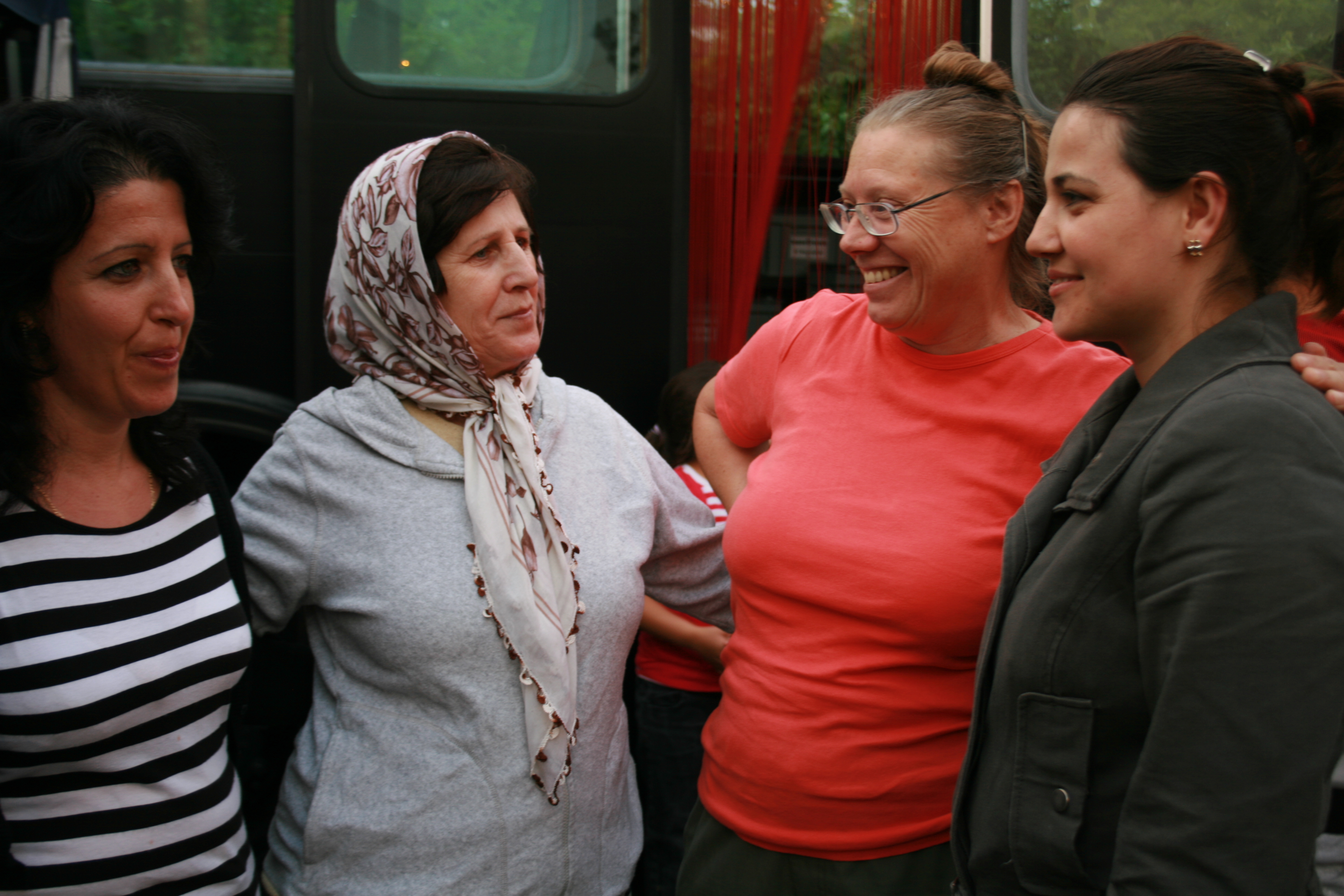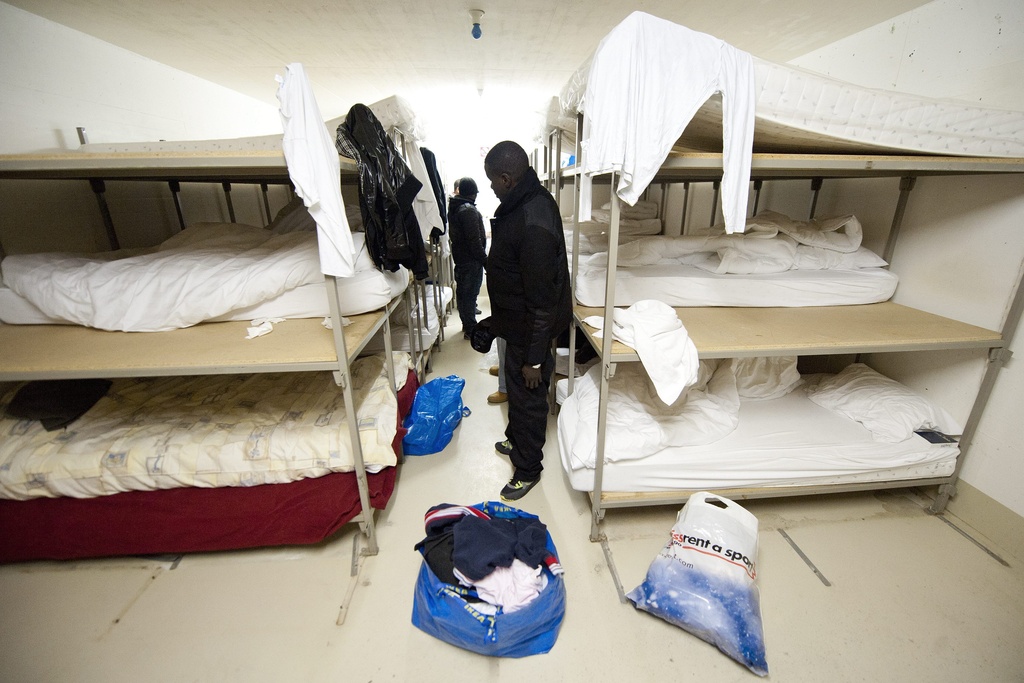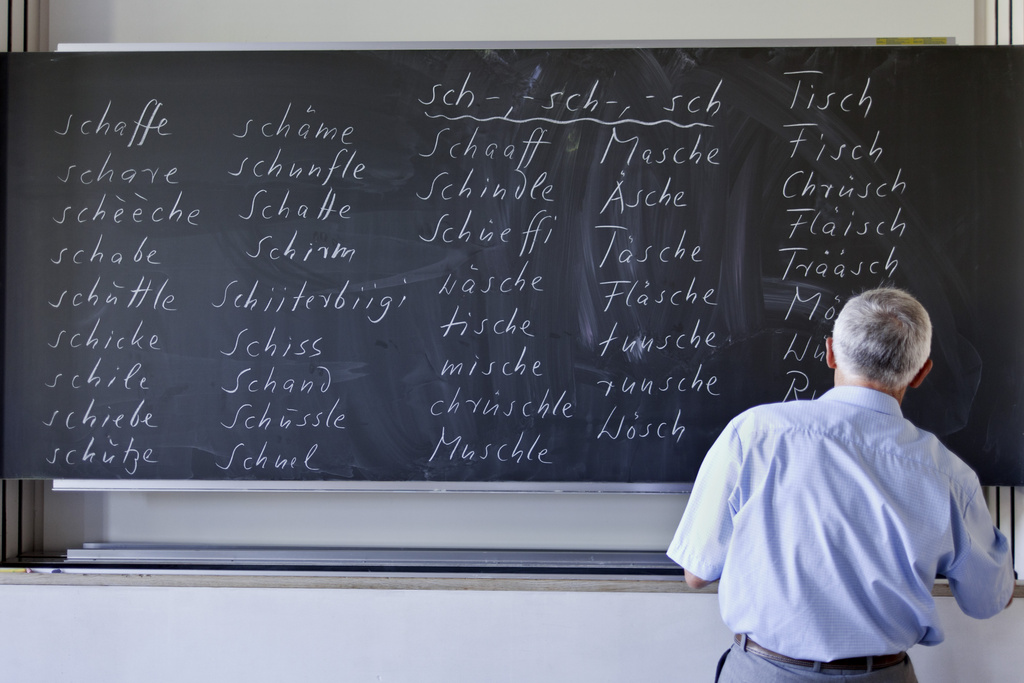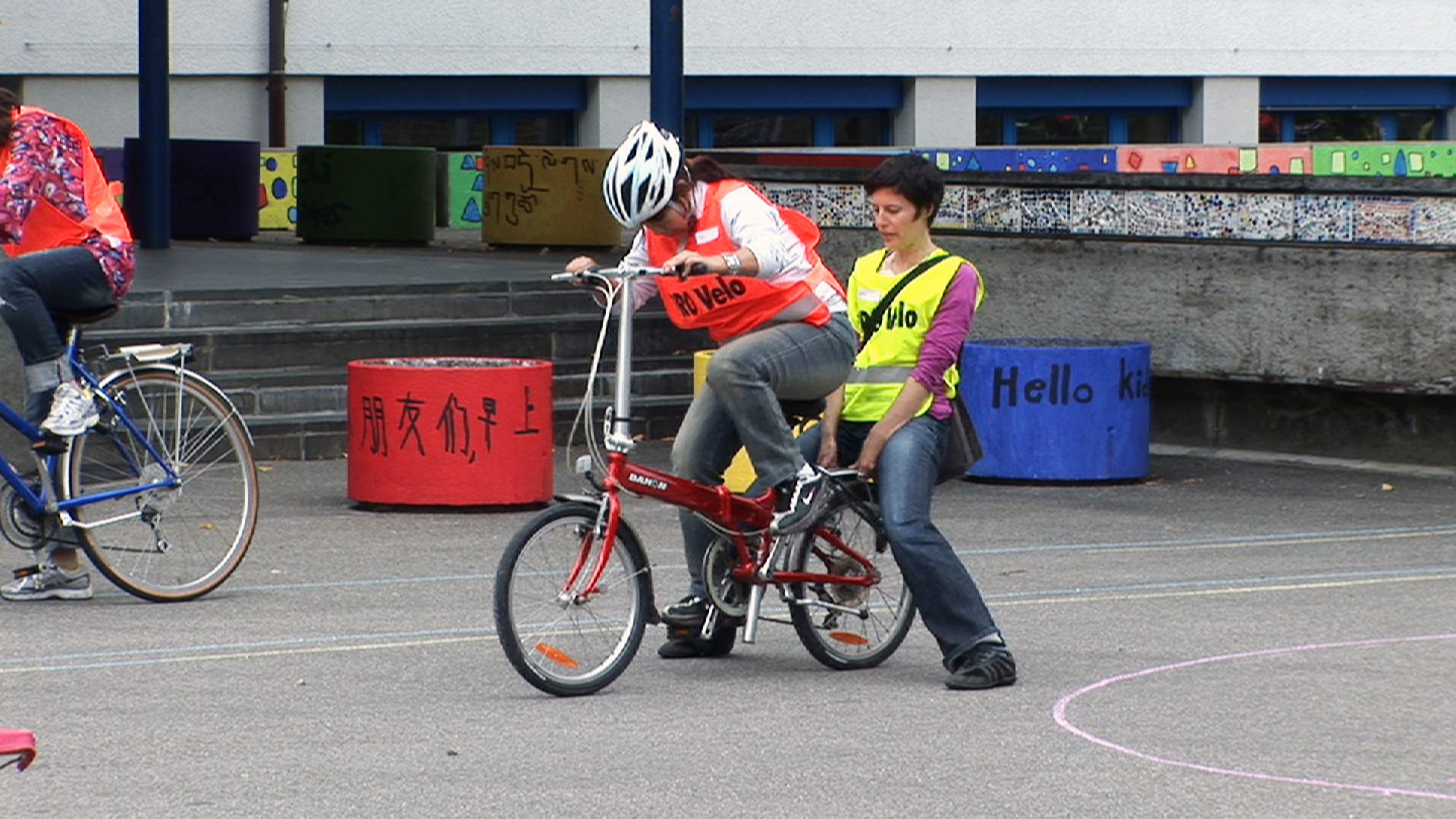Reaching out to the wrong side of the tracks

Sandwiched between the main road and the railway track and a long walk from the village centre, Mülital is the kind of area that residents usually aspire to get out of.
On an average evening, many of the 60 children who live here play outside along a narrow driveway between the 1960s apartment blocks and a row of garages.
Mülital is part of the village of Schmitten in canton Fribourg, and yet it is also a place apart, a place most Schmitten residents never visit. Some describe the neighbourhood as a ghetto.
But Mülital also has some good friends and it has become the focus of the kind of community development work that promises to get results.
Earlier this month, community activists distributed flyers to the residents with information about a week-long programme of events for children and adults outlined in Albanian, Serbo-Croat, Kurdish, Turkish and Portuguese, as well as in the local language German.
The aim of the project is to build contacts between the Mülital community and the Schmitten community, on a formal and informal level.
Meet and greet
How is this done in practice? swissinfo.ch went along to one of the events, an outdoor information evening in Mülital where local clubs and associations presented their activities to people they might otherwise not reach.
One of the organisers, Yvette El-Fen, had knocked on every door in the neighbourhood to encourage people to take part. She finds it especially easy to talk to the residents of Mülital considering she has taught so many of them to speak German.
El-Fen is the person the residents come to when they get stuck. It may be help with filling in forms, questions about the children’s schooling or various problems with officialdom.
“I enjoy my work in teaching and family support because I can see the results. Every community should have the kind of language classes that Schmitten offers,” she told swissinfo.ch.
But this project is about more than just bringing people together and getting new members for the badminton club; the organisers want to hand over the initiative to the residents themselves. What happens next will depend on the people of Mülital.
Fair play
Speaking to the local residents about their wishes, the first topic that comes up is somewhere for the children to play.
The three-generation Limani family live in a ground floor apartment in Mülital. Ramadan Limani works in Schmitten and has good German. He came to Switzerland from Kosovo as a boy. His wife and mother attend language classes with El Fen.
“We’ve made the garden nice for the children but you can’t keep them in there all the time and we are concerned about safety,” Ramadan said.
“We need better fencing on both sides, rail and road, and some traffic calming to stop cars coming in here so fast,” he added.
The Limanis hope to move up the hill closer to the village one day. “There are some nice areas there.”
The needs of the younger children are perhaps easier to address. Once they start school there are also extra language classes, homework clubs and sports clubs.
Life lessons
But those approaching school-leaving age also need to be targeted. “The older kids need career advice, they need to be better prepared for life to stop them from making bad choices,” Limani said.
Bad choices made by previous residents of Mülital have led to Schmitten being the focus of negative publicity, something the townspeople are slow to forgive. The worst was an infamous gang rape case four years ago, referred to in the media as the “Schmitten case”.
The idea to reach out to Mülital came from Kevin Auderset, a member of the local community council with responsibility for youth.
“Although I was born in Schmitten, I didn’t really know what Mülital was like because I had never visited here,” he told swissinfo.ch.
Until last autumn, when curiosity prompted Auderset to take a walk down to the area. When he saw the glaring lack of amenities for children, he felt compelled to do something about it.
He enlisted the help of Mano Verde, a community development charity, and those already involved with the Mülital community, such as youth workers, social workers and the scouts.
Together they devised a week-long programme of events for children and adults, which finished up last Saturday with a treasure hunt in the forest above Mülital.
Local voices
“The first part of the project was to get to know the residents and find some key people who could represent the community,” Auderset explained.
One of the best Mülital ambassadors is Rewan Muhamad, a confident and friendly 18 year old. Now attending high school in Fribourg, he also works part-time in a call centre and is a scout leader.
“I’d like to go to university and maybe go on to be a social worker,” the eldest of five explained in excellent school English with his little sister sitting on his lap. Rewan arrived in Switzerland with his family in 2000, asylum seekers from Iraq.
The second part of the project is to get motivated residents together at a workshop in June to talk about the needs of the neighbourhood and come up with ideas for what could be changed or improved.
“The goal is for the people to think about their situation and decide for themselves what could be changed. It has to come from them,” Auderset said.
Christoph Oesch of Mano Verde is upbeat about the prospects for Mülital. “The community [Schmitten authorities] is ready to commit long-term once the impetus comes from the residents. They can apply for grants from different sources when they have an idea of what is needed.”
The Mülital project has been supported with SFr5,000 from the community authorities, SFr3,000 from the local Catholic parish and a further SFr3,500 from the cantonal youth office.
Led by Kevin Auderset, a member of the community council with responsibility for youth, the project has involved the local youth worker, social worker, the language teacher and the scouts.
The Schmitten team engaged the services of a community development charity Mano Verde, which specialises in youth-related events and participation projects.
Seven districts, 168 communes, including Schmitten.
Population (2009 estimate): 277, 811
Foreign population (2009 estimate): 50, 843
Naturalisations (2009): 833

In compliance with the JTI standards
More: SWI swissinfo.ch certified by the Journalism Trust Initiative








You can find an overview of ongoing debates with our journalists here. Please join us!
If you want to start a conversation about a topic raised in this article or want to report factual errors, email us at english@swissinfo.ch.